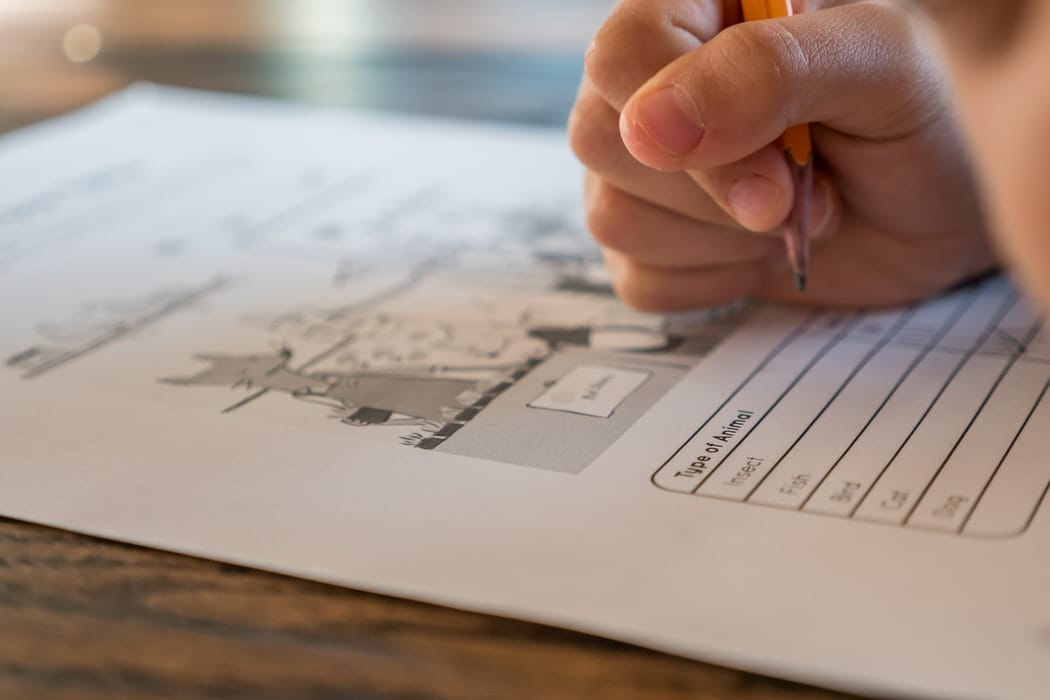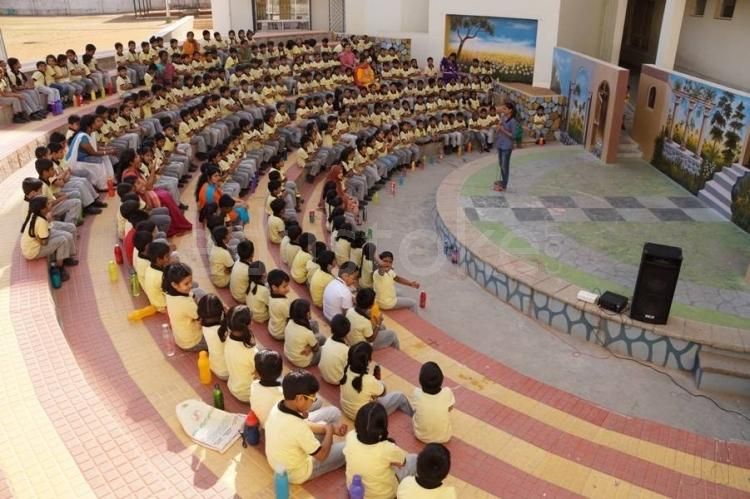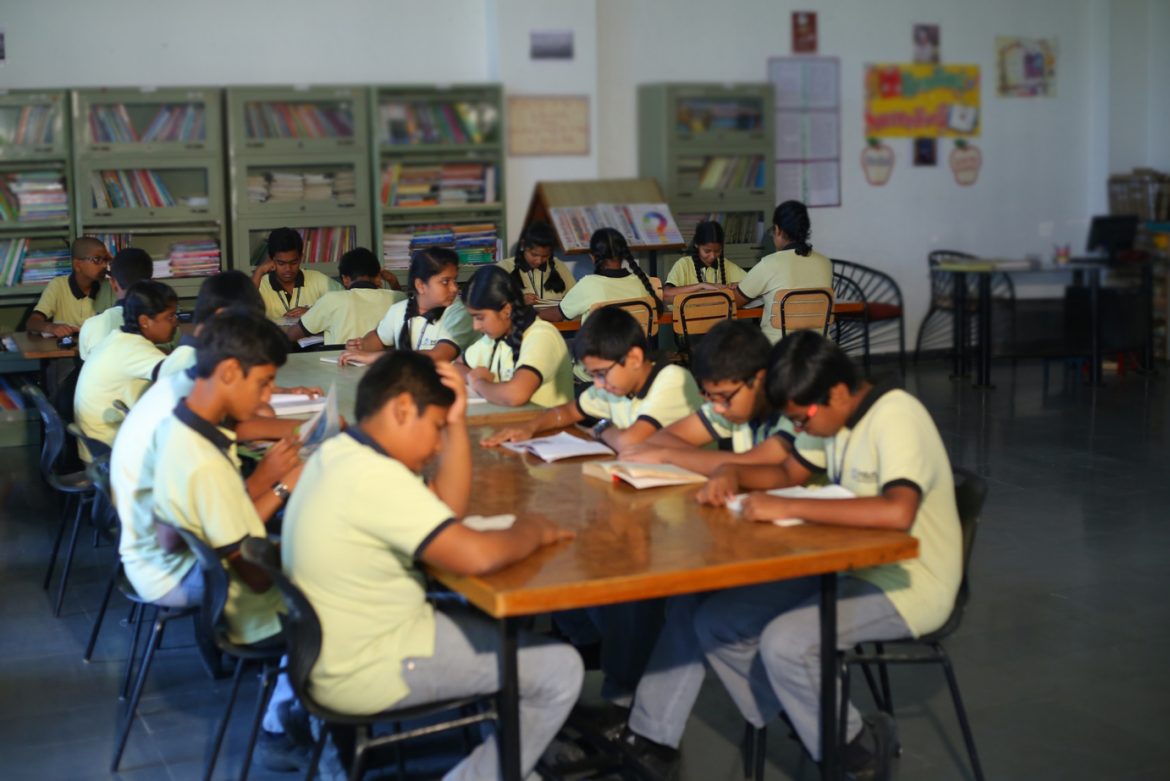Our curriculum renders a comprehensive and significant experience for kids, along with the effort to move away from the traditional education. The child will be engaged in joyfully exploring the world around and harmonizing with it.
The objective is to nurture discovery, joyful learning experiences through learning to do and be able to associate with natural surroundings of the child about the world without compromising on the natural growth of the child.
.jpg)
.jpg)
Our curriculum renders a comprehensive and significant experience for kids, along with the effort to move away from the traditional education. The child will be engaged in joyfully exploring the world around and harmonizing with it.
The objective is to nurture discovery, joyful learning experiences through learning to do and be able to associate with natural surroundings of the child about the world without compromising on the natural growth of the child.

The time of elementary school from Grade I to V is recognized as the influential schooling. This is the time in which the child is introduced to reading, writing and arithmetic, introduction of the formal disciplines such as sciences and the social sciences.
This period of five years plays a significant role in tremendous cognitive development, shaping reason, intelligence and social skills, as well as the skills and attitudes required for entering Middle School.
At this stage the children are curious and it is curiosity that compels children to explore the world around them and ask questions. Their little impetus to discover or explore with curiosity is what makes them learn along with selfexpression. We at Indus encourage curiosity by keeping it in a right way and allow children learn form their own experiences through Learning to Do, Thematic or Inter-Disciplinary approach, Task Based Learning etc.

The time of elementary school from Grade I to V is recognized as the influential schooling. This is the time in which the child is introduced to reading, writing and arithmetic, introduction of the formal disciplines such as sciences and the social sciences.
This period of five years plays a significant role in tremendous cognitive development, shaping reason, intelligence and social skills, as well as the skills and attitudes required for entering Middle School.
At this stage the children are curious and it is curiosity that compels children to explore the world around them and ask questions. Their little impetus to discover or explore with curiosity is what makes them learn along with selfexpression. We at Indus encourage curiosity by keeping it in a right way and allow children learn form their own experiences through Learning to Do, Thematic or Inter-Disciplinary approach, Task Based Learning etc.
This is the stage where the basic building blocks for further Learning are reinforced and structured. The child gets further into exploring and various formal disciplines are introduced.
The concept of Constructivism plays a very critical role at this stage and the core methodology is to help the child probe and construct knowledge rather than giving or disseminating knowledge through lecturing. Hence, our approach to adopt the Question Methodology helps us in reaching the desired goal.
Indus believes in helping our children to start thinking independently, move towards Self-Reliance and Art of SelfLearning that would put them on the track towards Lifelong Learning.


This is the stage where the basic building blocks for further Learning are reinforced and structured. The child gets further into exploring and various formal disciplines are introduced.
The concept of Constructivism plays a very critical role at this stage and the core methodology is to help the child probe and construct knowledge rather than giving or disseminating knowledge through lecturing. Hence, our approach to adopt the Question Methodology helps us in reaching the desired goal.
Indus believes in helping our children to start thinking independently, move towards Self-Reliance and Art of SelfLearning that would put them on the track towards Lifelong Learning.

As students move to Secondary & Senior Secondary School, they become independent learners with an interest in setting personal academic and career goals. It is also a period of intense physical change, formation of identity, intense vibrancy and energy.
In this stage the focus moves onto helping children acquire certain generic skills and it is the final stage for preparing them for Life. Learning is a form of problem solving. Children need to be mentored to set their own learning goals and to reflect on what they are learning. They are to work collaboratively so as to develop good communication skills and the learning environment is 'safe'. The goal should be valuing every student as a learner and aiming for each student in the school to have positive pictures of themselves as learners.
Indus engages its Mentors as synergiser and encourages pride in learning among the children. We help the child to set the stage to transfer skills and behaviors learned to real life after school. The Lecture Demonstration Method is used along with goal development and chalking out a career path.

As students move to Secondary & Senior Secondary School, they become independent learners with an interest in setting personal academic and career goals. It is also a period of intense physical change, formation of identity, intense vibrancy and energy.
In this stage the focus moves onto helping children acquire certain generic skills and it is the final stage for preparing them for Life. Learning is a form of problem solving. Children need to be mentored to set their own learning goals and to reflect on what they are learning. They are to work collaboratively so as to develop good communication skills and the learning environment is 'safe'. The goal should be valuing every student as a learner and aiming for each student in the school to have positive pictures of themselves as learners.
Indus engages its Mentors as synergiser and encourages pride in learning among the children. We help the child to set the stage to transfer skills and behaviors learned to real life after school. The Lecture Demonstration Method is used along with goal development and chalking out a career path.
